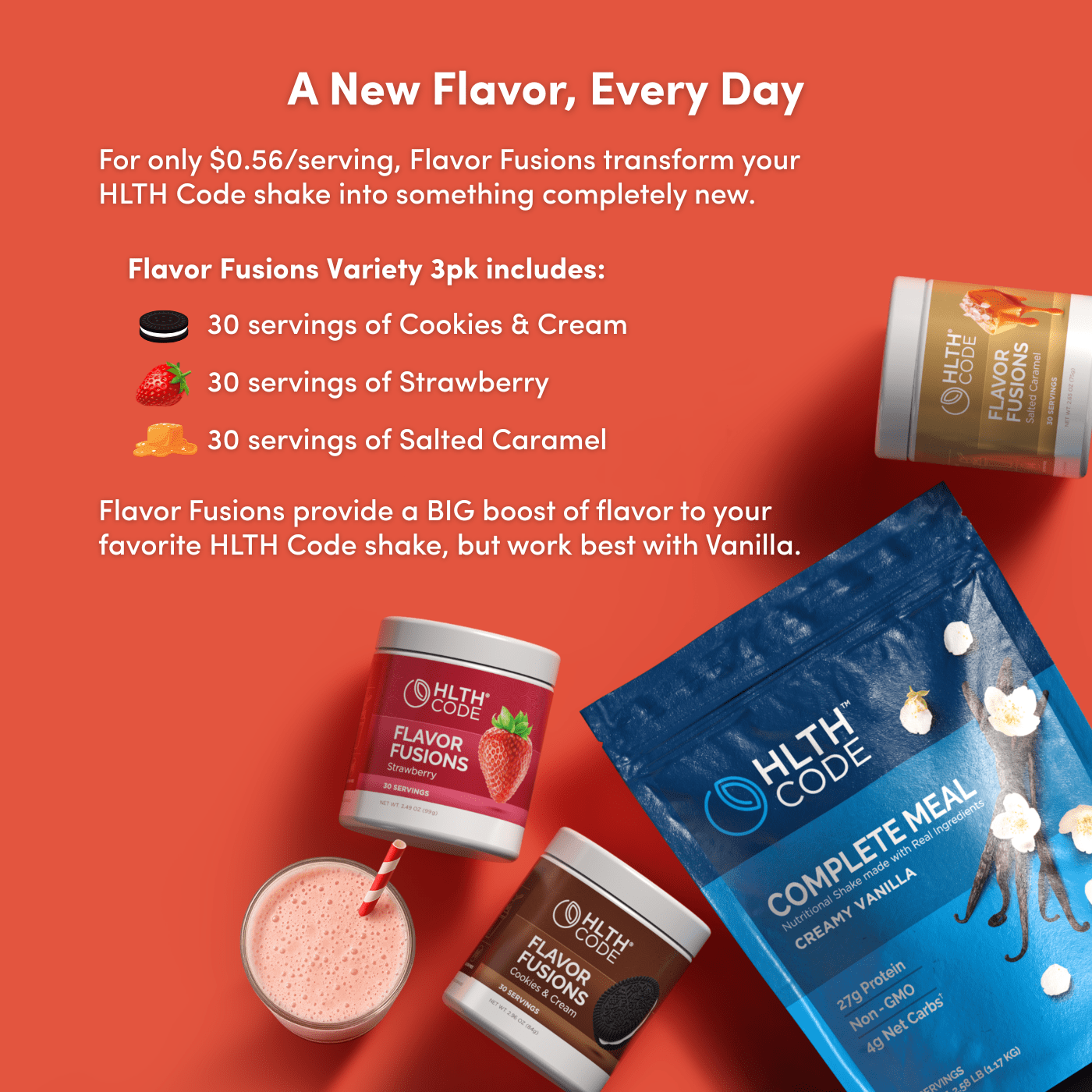How to Cheat on Your Keto Diet (Without Breaking Up)

If you’ve been eating a low carb or ketogenic diet for long, chances are you’ve wondered if it’s okay to, well, cheat now and then. The practice of occasionally eating something that doesn’t match your diet is known as a cheat meal, or even a cheat day, and it has become a popular way for people to treat themselves while generally maintaining their way of eating. In a low calorie diet, someone may simply try to eat fewer calories in the days leading up to or after indulging. But a ketogenic diet isn’t like diets that focus on calorie restriction; it’s about keeping your carbohydrate intake to a minimum (typically beneath 50g/day) so that the body can enter ketosis and use your stored fat for fuel.
So can a person eating a carb-restricted diet really cheat on it without undoing all the good the diet does for them?
The answer depends on multiple factors.
Will Cheating on Keto Undo All My Hard Work?
This question is more complicated than it appears. No real studies have been done to show the effects of a cheat meal or cheat day long-term. Over-indulging in simple carbs will have a negative effect on any diet, and keto is no exception [1]. Your body will naturally use carbs over its own fat as its preferred source of fuel, bumping you out of ketosis. Getting back into ketosis can take several days or more to get back on track, depending on factors like how many carbs you ate, how long you were in ketosis before, your activity levels, and if you fast [2]. But that isn’t to say you can’t or shouldn’t ever do it.
Know Yourself
Does the idea of never eating a cookie again fill you with dread? Does it prevent you from wanting to even embark on the kind of lifestyle change that comes with a low-carb or ketogenic diet? If so, then a planned cheat meal could help you begin or maintain a low carb lifestyle. Keep in mind, however, that if you’re new to the journey or if you constantly crave carbs, a cheat meal could do more harm than good, as it may make the cravings intensify [3]. The longer you’ve been in ketosis, the easier it will be for your body to return to that state. And the quicker you got into ketosis originally, the quicker you can expect to return. Think, too, about your own strengths and weaknesses with following any diet. Can you indulge without a hiccup or will it make following a healthy lifestyle harder? Only you can say for sure.
Know Your Limits
Some people may be content with a cheat meal and others may want a cheat day. A single meal has the potential to have less of an impact than a full day of cheating, so if you’re looking to lose a lot of weight or looking for general health benefits, a cheat meal is the better choice.
How often you treat yourself is another consideration. A piece of cake at a party or a plate of pasta may be possible once or even twice a week. If you’re looking for a full cheat day, you’re better off doing once every 10-14 days.
Know Your Motivations
Some who follow a ketogenic diet do so to help with health conditions. A single cheat meal could, in fact, be dangerous. Others find that an all-or-nothing mentality of total abstinence is simply easier to maintain than a diet that allows for occasional indulgences. Still others follow a keto diet because they believe in the science behind it and want the incredible health benefits that come along with it [4,5,6,7].
If you’re following a ketogenic diet because of health concerns, you’ll want to be far more cautious than someone who is following the diet for other reasons. Consider eating “keto treats” or low-carb desserts to satisfy a craving (and be sure that your pantry is stocked with keto-friendly foods, in the first place!).
If you’re restricting carbohydrates for weight loss or because you want the general health benefits associated with the lifestyle, then planned indulgence could be part of sustaining the diet long term.
Furthermore, your long-term goals are an important consideration. Is keto a lifestyle or a diet? If you plan to restrict carbs for the rest of your life, then it’s likely impractical to think you’ll never eat a slice of pie at Thanksgiving or eat the chips at a barbecue.
If you’ve decided that treating yourself to a cheat meal or day is part of the lifestyle you want, then read on for some tips on how to cheat smarter.
Ways to lessen the impact of cheating:
-
-
- Think more “treat” and less “cheat”. A treat can be a motivation or a reward for hard work. If you’re making consistent efforts to take care of yourself, rewarding yourself with your favorite ice cream may be a positive way to keep yourself on a healthy path. If you feel like you’ve cheated on your diet, however, an element of shame may creep in, derailing your efforts. Truly consider what you want out of a “cheat” meal and allow yourself to enjoy it.
- Cheat strategically: rather than going for a full “anything goes” cheat day, consider a cheat meal. Save your indulgence for a big dinner or dessert that will allow for the insulin spike to happen in one fell swoop rather than having multiple, sustained spikes throughout the day.
- Don’t binge: even if you’re comfortably maintaining your lifestyle, a planned day of binge eating can be detrimental to mental and physical health, particularly for those with disordered eating. Know yourself and plan accordingly to stay healthier, both mentally and physically.
- Prioritize protein: if your cheat involves any kind of protein, put that first. The order of eating can actually lessen the insulin spike! So eat the burger first, then the fries [8].
- Fast (or fast longer) following your cheat meal: research shows that fasting after a carb heavy meal allows you to return to ketosis faster than not fasting [9]. Aim for the longest stretch you can sustain. If you can go 12-16 hours, great! If you can go longer, do it. But the most important part of the fast is how you break it: keep it strictly low carb.
- Exercise: research shows that vigorously exercising at the beginning of a fast session helps people get into ketosis an average of 3.5 hours sooner than without exercising [10]. Additionally, walking for even two minutes after a meal can help lower blood sugar [11]!
-
A ketogenic diet doesn’t have to mean never eating carbs again. If you know yourself and your limits, keep your motivations in mind, and cheat smart, treating yourself can be part of your successful low carb lifestyle.
References
- https://www.sciencedirect.com/topics/agricultural-and-biological-sciences/high-carbohydrate-diet
- https://pubmed.ncbi.nlm.nih.gov/28599043/
- https://food.ndtv.com/food-drinks/this-is-why-you-crave-sugar-immediately-after-your-meal-1712612
- Vandenberghe, C., et al., Medium Chain Triglycerides Modulate the Ketogenic Effect of a Metabolic Switch. Front Nutr, 2020. 7: p. 3.
- Sharman, M.J., et al., A ketogenic diet favorably affects serum biomarkers for cardiovascular disease in normal-weight men. J Nutr, 2002. 132(7): p. 1879-85.
- Talib WH, Mahmod AI, Kamal A, Rashid HM, Alashqar AMD, Khater S, Jamal D, Waly M. Ketogenic Diet in Cancer Prevention and Therapy: Molecular Targets and Therapeutic Opportunities. Curr Issues Mol Biol. 2021 Jul 3;43(2):558-589. doi: 10.3390/cimb43020042. PMID: 34287243; PMCID: PMC8928964.
- https://www.ncbi.nlm.nih.gov/pmc/articles/PMC6277302/
- Imai S, Fukui M, Kajiyama S. Effect of eating vegetables before carbohydrates on glucose excursions in patients with type 2 diabetes. J Clin Biochem Nutr. 2014 Jan;54(1):7-11. doi: 10.3164/jcbn.13-67. Epub 2013 Dec 27. PMID: 24426184; PMCID: PMC3882489.
- https://www.ncbi.nlm.nih.gov/pmc/articles/PMC7342268/
- https://journals.lww.com/acsm-msse/Fulltext/2021/09000/The_Effects_of_Exercise_on___Hydroxybutyrate.21.aspx
- Buffey, A.J., Herring, M.P., Langley, C.K. et al. The Acute Effects of Interrupting Prolonged Sitting Time in Adults with Standing and Light-Intensity Walking on Biomarkers of Cardiometabolic Health in Adults: A Systematic Review and Meta-analysis. Sports Med 52, 1765–1787 (2022). https://doi.org/10.1007/s40279-022-01649-4
This article is for informational and educational purposes only. It is not, nor is it intended to be substitute for professional medical advice, diagnosis, or treatment and should never be relied upon for specific medical advice.




















